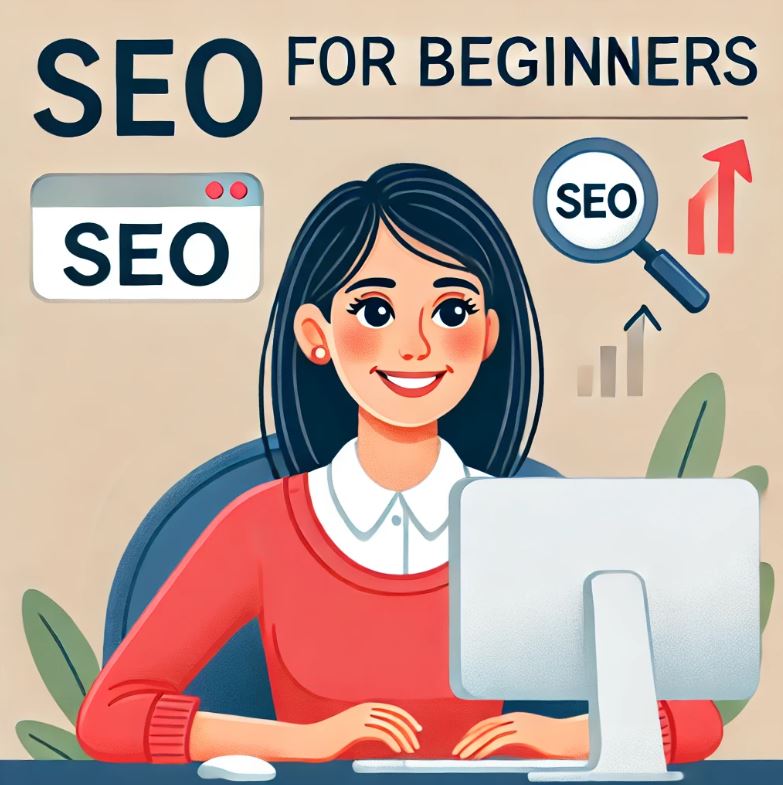 SEO, or Search Engine Optimization, is all about making your website more visible on search engines like Google, which can help attract more visitors. For beginners, it might seem like a mysterious process, but it’s all about enhancing how your site appears and ranks online.
SEO, or Search Engine Optimization, is all about making your website more visible on search engines like Google, which can help attract more visitors. For beginners, it might seem like a mysterious process, but it’s all about enhancing how your site appears and ranks online.
One of the first things people ask is whether they can learn SEO on their own. The answer is absolutely yes! Tons of resources are available online, from webinars to free courses and blogs. You can dive into these at your own pace and pick up the skills you need. Plus, the SEO community is super supportive, so you’ve got plenty of help if you get stuck.
When you’re just starting out, the first big step in SEO is understanding the keywords – the terms people use when looking for things online. This step is crucial because aligning your site with these keywords means search engines know you’ve got what users want. Grab a keyword research tool or start with Google’s Keyword Planner to simplify this process.
Now, about that question – can you learn SEO in 10 days? It’s a bit of yes and no. You can certainly grasp the basics and get a feel for the fundamental concepts in a short amount of time. However, mastering SEO to its fullest takes longer due to its evolving nature, but that’s the fun part! You’re constantly learning and adapting.
Essential Skills and Tools for SEO Beginners
Jumping into the world of SEO means getting to grips with a few key skills.
Keyword research
First up is keyword research, which is all about finding the right words and phrases folks are typing into search engines. This skill helps ensure your content meets the needs of your audience, making it more likely they’ll find you amid all the online noise.
Content creation
Content creation is another crucial skill. It’s not just about writing, it’s about crafting content that’s relevant, engaging, and optimised for search engines. This involves understanding how to incorporate those keywords you’ve researched without making the text awkward or spammy.
HTML
On the technical side, a basic understanding of HTML and how websites are structured can go a long way. This knowledge helps you tweak things like meta tags, alt text, and site maps, all of which are important in helping search engines understand your content.
Tools
When it comes to tools, start with the basics. Google Analytics and Google Search Console are your new best friends. They offer insights into how your site performs and where improvements are needed.
Another useful tool is a keyword planner which helps identify which keywords to target
Books and courses
If you’re looking to learn more, check out books on SEO or enroll in online courses.
Sites like Moz and HubSpot offer free resources that break down the basics.
If you like learning in a community setting, forums like Reddit’s SEO subreddit can provide real-world insights and advice. Keep experimenting and don’t shy away from asking for help if needed.
Developing a Beginner Friendly SEO Strategy
Beginner SEO strategists need a plan to guide their efforts efficiently.
Keyword research
Start with keyword research, an essential step that informs every aspect of your SEO strategy.
Use tools like Ubersuggest or SEMrush to find keywords relevant to your niche and audience, considering both search volume and competition.
Optimising
Once you’ve got your keywords, focus on optimising on page elements.
This includes crafting compelling titles and meta descriptions that incorporate your chosen keywords. M
ake sure your content is structured well with headings (H1, H2) that logically show the hierarchy and flow of your information. This not only helps your readers but also assists search engines in understanding your pages better.
Off page SEO
Off page SEO, while seeming a bit complex, boils down to building the authority of your site through backlinks. Consider guest blogging or reaching out to industry peers for collaborations, which can naturally lead to quality backlinks. Remember, it’s the quality, not the quantity, that counts.
Tracking
To track your progress and make data-driven decisions, regularly measure and analyze performance indicators such as page views, bounce rates, and rankings. Google Analytics and other SEO-specific tools will be instrumental for this. Regular reviews will show what’s working and where tweaks are needed.
Avoiding Common SEO Pitfalls and Challenges
Embarking on your SEO journey often comes with a bit of trial and error, but recognising common pitfalls can save you time and hassle.
Competition for keywords
One major mistake beginners make is targeting keywords that are highly competitive and difficult to rank for. Instead, focus on niche terms or long tail keywords that are specific and less competitive, which can be more effective in drawing traffic from your ideal audience.
Don’t ignore mobiles
Ignoring mobile optimisation is another common oversight.
With more users browsing on their phones, ensuring your website is mobile friendly is not only good for users but also benefits your standing in search engine results.
Stay updated
Staying updated with SEO trends is vital.
Search engine algorithms change frequently, and what worked last year might not cut it today.
Following trustworthy SEO news sites or subscribing to industry newsletters can keep you informed about the latest developments.
In Conclusion
Balancing the art and science of SEO is a challenge.
While it’s important to keep a technical eye on things, creativity plays a big role in attracting and retaining visitors. Engage users with unique, valuable content while simultaneously ensuring your site is technically sound.
Above all, patience and persistence are key.
SEO isn’t an overnight success, it’s about building a strong foundation and being consistent with your efforts.
Celebrate small wins and keep refining your strategies to see improvements over time.
